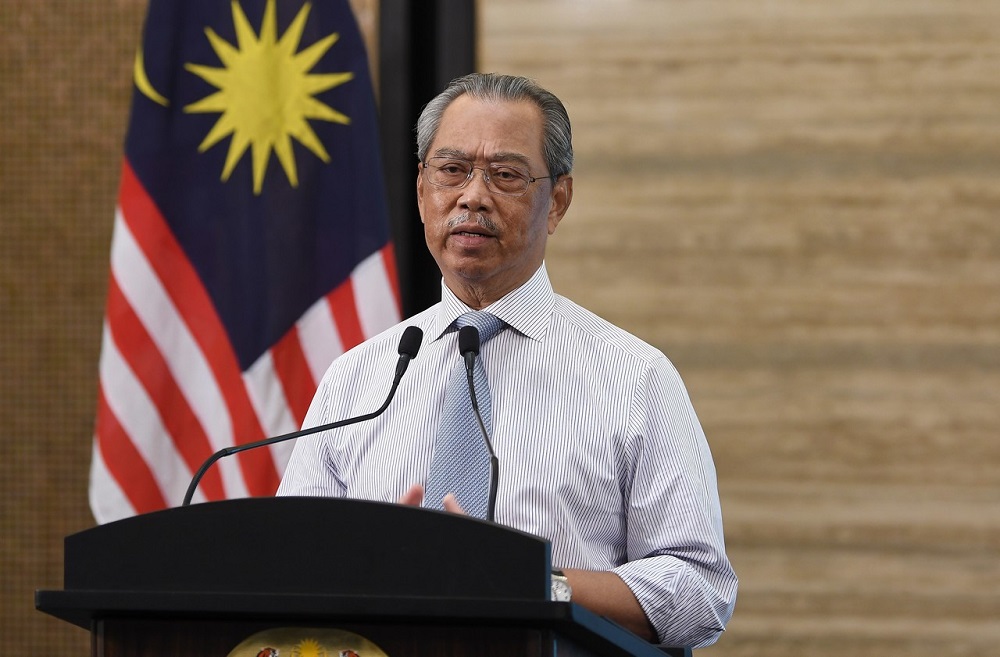
KUALA LUMPUR, Dec 13 — The RM21 billion national digital infrastructure plan, Jalinan Digital Negara (Jendela) was designed to steer Malaysia towards greater digital connectivity by boosting the efficiency of the national infrastructure and optimising spectrum usage.
In August, Prime Minister Tan Sri Muhyiddin Yassin announced that the Jendela action plan, which is part of the 12th Malaysia Plan (2021-2025), would lay the foundation for comprehensive and high-quality broadband coverage as well as prepare the country for the transition towards 5G technology.
Malaysian Communications and Multimedia Commission (MCMC) chairman Fadhlullah Suhaimi Abdul Malek said the tender for infrastructure works at 1,661 sites involving an investment value of RM4.6 billion under Jendela, would be closed on March 31, 2021.
He said Jendela has two phases, where Phase 1 is executed from 2020 to 2022 and Phase 2 from 2022-2025.
Phase one entails enabling as many as 7.5 million premises with gigabit speed fixed line broadband; expanding 4G mobile coverage from 91.8 per cent to 96.8 per cent in populated areas; and upgrading mobile broadband speed from 25Mbps to 35Mbps, and concerns gradual retirement of 3G networks by the end of 2021.
Phase two involves utilising fixed wireless access and other fit-for-purpose technologies to address further gaps in the digital divide while priming for the eventual adoption of 5G once plans in phase one are achieved.
Nokia managing director for Malaysia and Sri Lanka, Datuk Sivananthan Shanmugam said the Jendela initiative highlights the government’s commitment to develop the infrastructure needed to facilitate broader coverage of the current generation wireless technology across the nation, which in turn, would help to expedite the 5G roll-out in the near future.
“For mobile network operators, the Map will be especially useful for them to seek opportunities to optimise their resources through infrastructure sharing ventures, as well as reducing operator overlaps and duplication in order to improve nationwide broadband coverage,” he told Bernama.
An industry collaboration for Jendela’s success
Of the RM21 billion budgeted for Jendela, 40 per cent is derived from MCMC’s Universal Service Provision (USP) funds with the remaining 60 per cent to be funded by industry players.
MCMC will help to manage the delivery of Jendela’s targets by telecommunication companies through setting up a Specialised Project Management Service unit to closely monitor industry progress with respective managements and provide solutions to resolve any hiccups.
In a note, Kenanga Research said existing market leaders such as Celcom, Digi, Maxis and U Mobile would likely spearhead the target of achieving the national coverage of 96.8 per cent by 2022, while the fibre network expansion of up to 7.5 million premises will likely be helmed by broadband leaders such as TM, TIMEDOTCOM and Maxis.
5G roll-out by 2022
While the nation is looking forward to successful implementation of the 5G spectrum, Communications and Multimedia Minister Saifuddin Abdullah said the government has pledged commitment to roll out 5G technology by the end of 2022 or early 2023, with connectivity being one of its top priorities.
He said the implementation of the 5G network project include availability in terms of connectivity, people’s readiness to receive the network, as well as regulatory and industries’ preparedness.
“In terms of connectivity, it is useless if we have 5G in some areas, when even 4G or others are not available in the rural and interior areas. There ought to be availability of access to avoid the digital divide.
“On industry accessibility, we expect 70 per cent of 5G deployment will be for the use of industries while the remaining 30 per cent will be among the general public,” he added.
Telcos performance amid Covid-19 pandemic
The Covid-19 induced movement control order (MCO) in March 2020 left businesses throughout the nation reeling with only a few crucial ones allowed to operate and virtually brought economic activities to a standstill.
Nonetheless, the telecommunications industry remained resilient given the highly essential nature of its services.
While industry players saw some shifts in their Postpaid/Prepaid mix and average revenue per user (ARPU), Kenanga Research found that total subscriptions during the first half of this year stood at 43.4 million which is closely similar to last year’s figure in the same period due to lower foreign subscriptions and multiple sim card users.
The research house said fixed line subscriptions grew six per cent compared with the first half of last year as broadband plans became more necessary due to higher home-bound arrangements.
The year saw emerging trends such as ‘Work From Home’ while Malaysia and the world at large, shackled by the pandemic and movement restrictions, transitioned to a ‘new normal’, which catapulted household demand for internet services.
The Malaysia Internet Exchange (MyIX), an association under the MCMC recorded the highest internet traffic peak of 532 gigabytes per second (Gbps) compared to 2019’s highest traffic peak record of 500 Gbps following the enforcement of the MCO on March 18.
Connectivity remains a priority
Meanwhile, the government continued to show its commitment in boosting the nation’s network coverage and capacity with a sizeable allocation in Budget 2021.
Under the Digital infrastructure, MCMC gets RM7.4 billion to build and upgrade broadband services in 2021 and 2022 while the Jalinan Prihatin Programme will get RM1.5 billion to alleviate the financial burden of B40 in accessing the Internet which in value will be matched by telecommunication companies with free data.
The government also allocated RM500 million to implement Jendela and ensure connectivity of 430 schools in Malaysia, besides RM42 million to improve connectivity in 25 industrial areas. — Bernama


